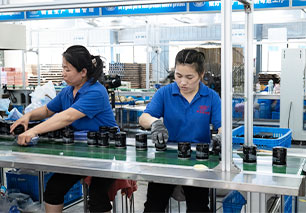Aug . 13, 2024 20:06 Back to list
Understanding Subaru Fuel Filters and Their Importance for Optimal Vehicle Performance and Maintenance
Understanding the Importance of Subaru Fuel Filters
When it comes to maintaining your Subaru vehicle, few components are as crucial, yet often overlooked, as the fuel filter. The fuel filter plays a vital role in ensuring that your engine runs smoothly and efficiently. This article will explore the function of the fuel filter in Subaru vehicles, the signs that it may need replacement, and the best practices for maintaining this essential part.
Function of the Fuel Filter
The primary purpose of the fuel filter is to clean the fuel before it enters the engine. As fuel travels from the gas tank through the fuel lines, it picks up various contaminants, including dirt, rust, and debris. A high-quality fuel filter traps these impurities, preventing them from entering the engine. This filtration is crucial because any contaminants in the fuel can lead to engine wear, reduced efficiency, and even catastrophic engine failure.
For Subaru vehicles, the fuel filter is typically located in the fuel tank or along the fuel line, depending on the model. Regularly inspecting and replacing the fuel filter is essential for maintaining the vehicle's overall performance. Clogged fuel filters can restrict fuel flow, leading to engine stalling, reduced power, and poor fuel economy.
Signs of a Failing Fuel Filter
Recognizing the signs of a failing fuel filter can save you from more costly repairs down the line. Here are some red flags to watch for
1. Engine Sputtering If your Subaru's engine struggles to maintain consistent power or sputters during acceleration, it could be a sign that the fuel filter is clogged and not allowing enough fuel to pass through.
2. Difficulty Starting A clogged fuel filter can also make it difficult to start the engine. If your Subaru has trouble starting, especially after sitting for a prolonged period, it’s wise to check the fuel filter.
3. Decreased Fuel Efficiency If you notice a sudden drop in fuel economy, a dirty or clogged fuel filter may be to blame. A blocked filter forces the engine to work harder to draw fuel, leading to increased fuel consumption.
subaru fuel filter

4. Engine Check Light In some cases, a malfunctioning fuel filter may trigger the engine check light. Although this light can indicate various issues, it’s a good idea to investigate the fuel system if the light comes on.
Maintaining Your Subaru Fuel Filter
To keep your Subaru running at its best, regular maintenance of the fuel filter is crucial. Here are some best practices
1. Regular Replacement Check your owner’s manual for recommended fuel filter replacement intervals. Typically, it’s advisable to replace the fuel filter every 30,000 to 50,000 miles, but this can vary based on driving conditions.
2. Use Quality Filters Always choose high-quality fuel filters that are compatible with your Subaru model. Using inferior parts can lead to more significant problems down the road.
3. Timing with Other Services Consider replacing the fuel filter during other routine maintenance services, such as oil changes. This practice ensures that the filter is changed regularly and minimizes the number of trips you need to make to the mechanic.
4. Monitor Fuel Quality Using high-quality fuel from reputable gas stations can reduce contamination in the fuel system and prolong the life of your fuel filter.
Conclusion
The fuel filter may seem like a small component in your Subaru vehicle, but its importance cannot be overstated. By understanding its function, recognizing the signs of failure, and adhering to maintenance best practices, you can ensure that your Subaru engine runs efficiently and lasts for years to come. Regular attention to this crucial part will not only enhance your driving experience but also protect your vehicle's overall health.
-
Toyota Corolla Hatchback Cabin Air Filter – High Efficiency & Easy Installation
NewsJul.08,2025
-
Premium Canister Fuel Filter Supplier High Quality Oil Filtration Solutions
NewsJul.08,2025
-
Premium Car Filter Oil Solutions Leading Car Oil Filter Exporter Hyundai Car Oil Filter Exporters
NewsJul.08,2025
-
Buy 17x21x1 Air Filter – Improve Air Quality & HVAC Efficiency Affordable Air & Cabin Air Filter Cost
NewsJul.07,2025
-
High-Performance Filter Element Fuel – Durable, Efficient & Cost-Effective Solutions
NewsJul.07,2025
-
High-Quality Engine Filter and Cabin Filter for Superior Airflow Affordable Cabin and Engine Air Filter Cost
NewsJul.07,2025


